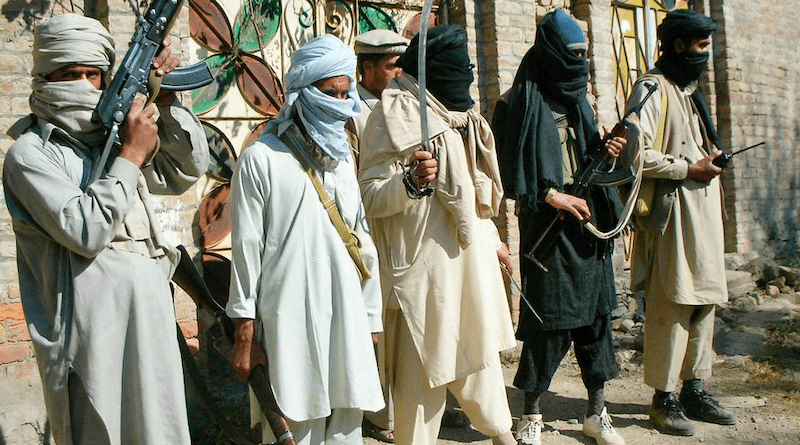The TTP’s Betrayal Of Pakistan And Afghanistan: A Story Of Terror, Deceit, And Opportunism – OpEd
Asad, a young man from a remote region of Pakistan who is impoverished and illiterate, becomes a member of the Tehrik-i-Taliban Pakistan (TTP) after being offered sustenance, revenue, and the chance to perform acts of so-called jihad for Allah. Asad undergoes extensive training in Afghanistan, where he learns the use of explosives, propaganda, and firearms. In Pakistan, he attacks targets as part of a TTP outfit. Despite his newfound strength and purpose, Asad soon learns that the TTP’s leaders are dishonest, selfish, and deceitful. They make deals with other extreme groups while eliminating their followers, which causes pain and despair. Asad realizes the TTP is more of a problem than a solution and wants to return to his birthplace and family because he regrets joining.
This fictional story is based on how the TTP has persuaded the innocent youngster of his cruel objectives. Indeed, there is a systematic flaw in the country, but that does not mean that the group or individual will betray the constitutional boundaries, nor will certain groups come down on rebellion. The TTP is a terrorist organization that contradicts its stated objective of advocating for a strict Islamic regime through its conduct. The TTP, which follows al-Qaeda’s doctrine, calls for the execution of non-believers and the expansion of the global jihad against the West and its allies. Their adherents are pawns in the TTP’s leaders’ deceitful, opportunistic, and cunning machinations. There is complete safety for the TTP’s leadership in Afghanistan, where they are based. In Pakistan, where they are involved in a pointless conflict, police authorities eventually eliminate their combatants. The TTP poses a significant threat to the peace and security of Pakistan, and it is crucial to expose and counter its true motivations and activities.
The TTP’s lack of concern for the SHU’s decision and their continued targeting of starving Afghan citizens exposes their weakness, as they refuse to lead the “Jihad” in Pakistan. They want to use Pakistan as a base to recruit terrorists to fight and sever ties between the intra-Afghan government (IAG) and Pakistan. TTP commanders execute enlisted men for financial gain and political influence, and they instigate infighting within themselves to maintain control. While their superiors and families remain inactive, it is their responsibility to deceive and instruct noncombatants on the process of suicide. Islamic social, moral, and religious norms are irrelevant to the TTP fighters. Instead, they serve as intermediaries for foreign leaders, accepting their financial backing and support in exchange for the slaughter of Muslim citizens in Pakistan. Even inside their nation, Muslims face severe persecution from those of a different religion.
Baitullah Mehsud, a well-known member of the Mehsood tribe in South Waziristan, founded the TTP in 2007, a clan-based terrorist organization. All of the TTP’s senior commanders are Hafiz Gul Bahadur, Aleem Khan Khushali, Muhammad Khurasani, Muzahim, Omar Khalid Khorasani, and Noor Wali Mehsud, all of whom are based in Afghanistan,
In addition to squandering tribal funds and influence, the TTP leaders have embraced the immoral, unethical, cultural, and religious beliefs of the Pakistani people. Through acts of religious manipulation, sectarian carnage, suicide bombings, and assassinations, they have coerced and terrorized innocent individuals. The TTP’s “Fasadi Agenda,” a scheme to destabilize the Pakistani government and society as a whole, is something that every Pakistani is cognizant of: its sole objective is to advance its narrow interests. The Pakistani government and its people have backed many military operations that have killed a large number of TTP members and supporters.
The Taliban, which was responsible for the massacre at Bacha Khan University in Charsadda, threatened in a video message that they would storm schools nationwide in Pakistan, labeling those who oppose Allah’s rule “nurseries.” While not disseminated through their official media platforms, the video quickly gained widespread attention on Facebook and prominently featured Khalifa Umar Mansoor, whose faction issued a statement of responsibility regarding the incident. One year subsequent to the Peshawar attack, which claimed the lives of more than 150 individuals, predominantly children, the outburst posed a risk to the developing sense of security in the perilous region. By attributing the assault to the ineffectiveness of a nationwide war against extremism and their capacity to randomly attack targets, the Taliban conveyed a message of impunity.

